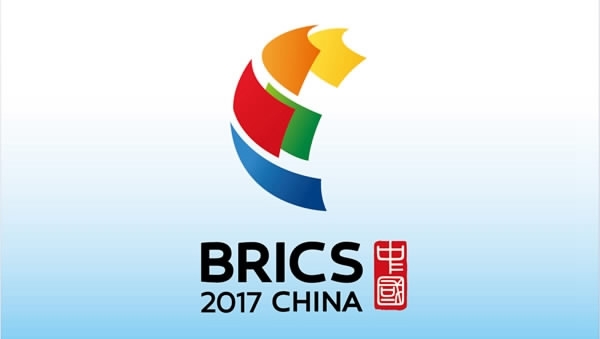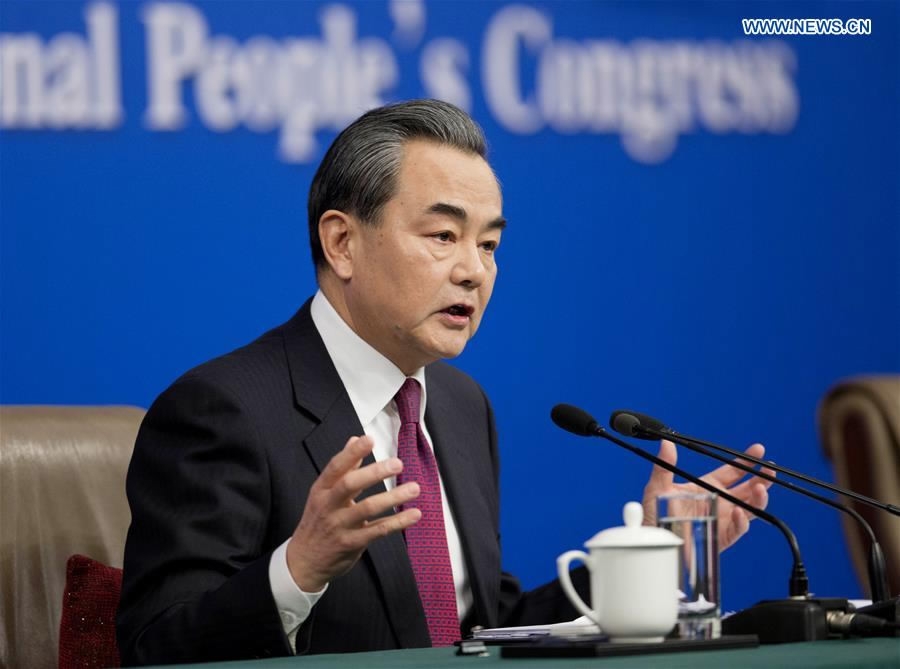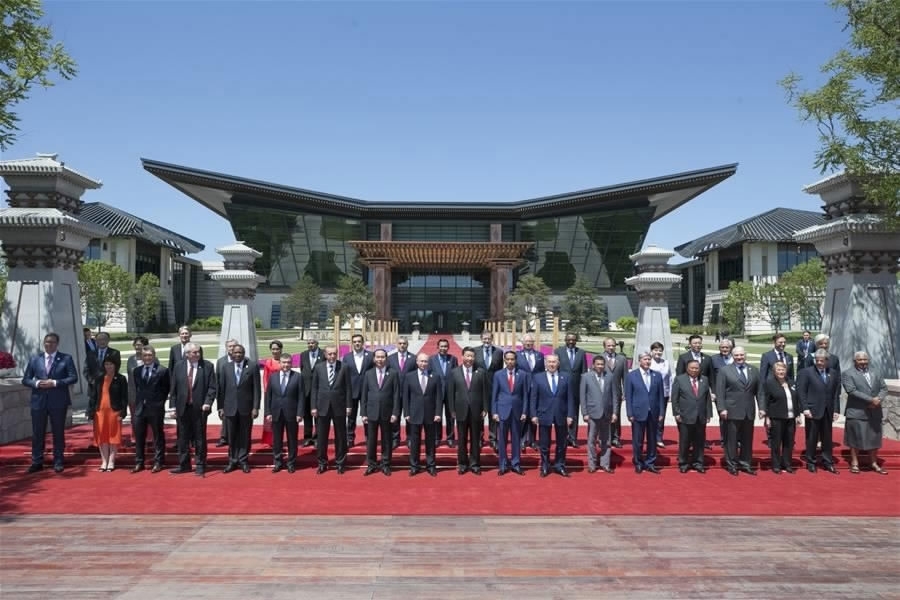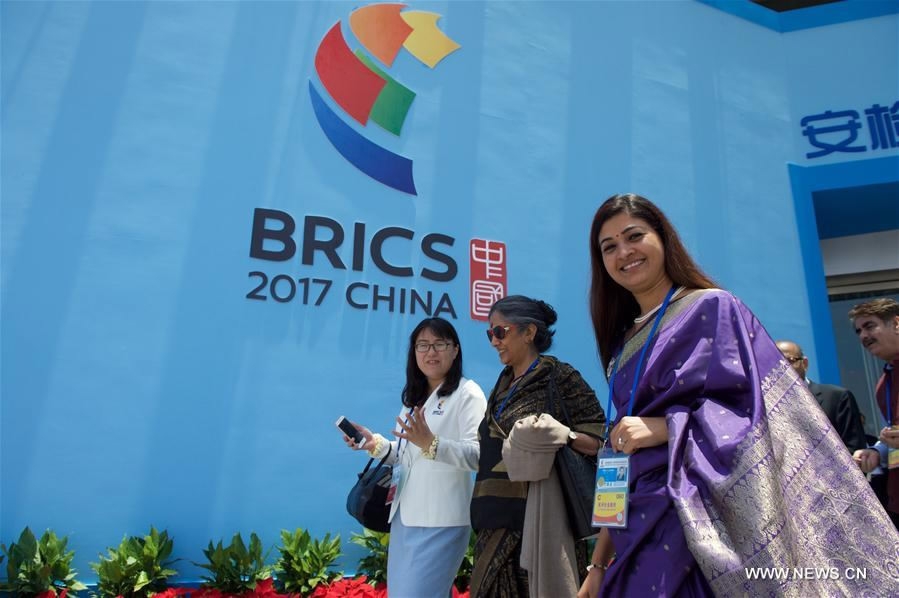
Politics
13:41, 02-Sep-2017
BRICS Plus aims to widen ties between emerging economies
CGTN

The association of BRICS consists of five major developing countries, Brazil, Russia, India, China and South Africa, but it has exceeded the five BRICS nations by consolidating other emerging economies and developing countries.
BRICS has a fine tradition of carrying out dialogue and cooperation with other emerging markets and developing countries on common issues of interest and mutual growth. This year's BRICS summit also highlighted the expanding cooperation with other developing countries.
BRICS Plus expanding future cooperation
In March this year, Chinese Foreign Minister Wang Yi said that China would explore a BRICS expansion, known as "BRICS Plus," by holding dialogues with other major developing countries or groups of developing countries to establish a more extensive partnership.

Chinese Foreign Minister Wang Yi speaks at a press conference in Beijing, March 8, 2017. /Xinhua Photo
Chinese Foreign Minister Wang Yi speaks at a press conference in Beijing, March 8, 2017. /Xinhua Photo
The proposal of BRICS Plus is meant to widen the friend circle of the BRICS, turn BRICS into the most-influential platform for South-South cooperation, and open up a brighter future for economic development and social progress of all developing countries.
Five other emerging market economies apart from the five BRICS states, Tajikistan, Egypt, Mexico, Guinea and Thailand, will take part in the ninth BRICS summit, adding to the power of the BRICS agenda for a stronger and broader partnership, which pushes to reflect the voice of developing countries and strengthen their representation and influence in an all-round way.
Also, the BRICS cooperation overlaps the mechanism of China-proposed Belt and Road Initiative. China's partnerships with Russia, Brazil and South Africa under the Belt and Road Initiative framework have yielded fruitful and laudable outcomes.

Chinese President Xi Jinping, foreign delegation heads and guests pose for a group photo at the Leaders' Roundtable Summit of the Belt and Road Forum for International Cooperation at Yanqi Lake International Convention Center in Beijing, May 15, 2017. /Xinhua Photo
Chinese President Xi Jinping, foreign delegation heads and guests pose for a group photo at the Leaders' Roundtable Summit of the Belt and Road Forum for International Cooperation at Yanqi Lake International Convention Center in Beijing, May 15, 2017. /Xinhua Photo
Li Jianmin, a researcher on Russia, Eastern Europe and Central Asia studies at the Chinese Academy of Social Sciences (CASS), said that the BRICS Plus will help expand both bilateral and multilateral trade between BRICS nations and other developing countries, thus benefiting the global emerging markets.
Yaroslav Lissovolik, chief economist of the Eurasian Development Bank said, "BRICS Plus" will provide opportunities for other economies and inject impetus into economic globalization.
BRICS Plus is an upgraded cooperation solution compared with the BRICS-BIMSTEC outreach summit held last year on the sidelines of the eighth BRICS summit in India.
BRICS-BIMSTEC outreach Summit
In the eighth BRICS summit in Goa, leaders of the five BRICS nations had a bilateral meeting with the BIMSTEC (Bay of Bengal Initiative for Multi-Sectoral Technical and Economic Cooperation), a regional grouping comprising of Bangladesh, Bhutan, India, Myanmar, Nepal, Sri Lanka and Thailand.

Foreign guests walk out of the venue of the opening ceremony of the BRICS Political Parties, Think-tanks and Civil Society Organizations Forum in Fuzhou, capital of east China's Fujian Province, June 11, 2017. /Xinhua Photo
Foreign guests walk out of the venue of the opening ceremony of the BRICS Political Parties, Think-tanks and Civil Society Organizations Forum in Fuzhou, capital of east China's Fujian Province, June 11, 2017. /Xinhua Photo
The main objective of the BIMSTEC meeting was technological and economic cooperation among South Asian and Southeast Asian countries lying in the littoral and adjacent areas of the Bay of Bengal. The inclusion of BIMSTEC member countries into the BRICS summit was believed to have given India an alternative platform to engage with its immediate neighbors.
Expanding cooperation of BRICS
BRICS countries have created a new paradigm for mutual benefit cooperation among emerging and developing economies since the mechanism was established in 2006.
"BRICS cooperation has not only helped the countries themselves but enhanced the right to speak on global issues for all developing countries," said Ruan Zongze, executive vice president of the China Institute of International Studies.
Through involving the participation and cooperation of more emerging economies, intensifying communication and exchanges with other emerging markets and developing countries under the principle of openness, inclusiveness and win-win cooperation, Brics Plus is expected to help explore ways to realize their full potential, and provide more positive energy for global economic growth and common development of all countries.

SITEMAP
Copyright © 2018 CGTN. Beijing ICP prepared NO.16065310-3
Copyright © 2018 CGTN. Beijing ICP prepared NO.16065310-3